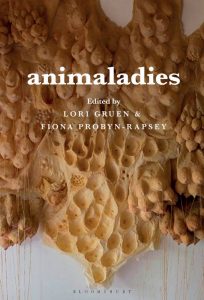2022 PhD Scholarship in Historical Studies/ Indigenous Studies – ARC Strategic Research Initiative ‘The cultural impacts of introduced animals in Australia’
Location: Clayton campus, Monash, Australia
Employment Type: Full-time
Duration: 3 year and 3 month fixed-term appointment
Remuneration: The successful applicant will receive a Faculty of Arts Research Living Allowance, at current value of $29,500 per annum 2021 full-time rate (tax-free stipend), indexed plus allowances as per RTP stipend scholarship conditions at: https://www.monash.edu/graduate-research/future-students/scholarships/scholarship-policy-and-procedures. Faculty will provide the tuition fee scholarship and Single Overseas Health Cover (OSHC) for a successful international awardee.
The Opportunity
The cultural impacts of introduced animals in Australia a new research collaboration.
Prof Lynette Russell and Prof Fiona Probyn-Rapsey (University of Wollongong) are looking for expressions of interest to undertake a fully funded PhD based at Monash University. We are seeking an Indigenous candidate with an interest in Indigenous knowledges, animal studies, and sustainability. The candidate will have an honours degree in a relevant discipline or the equivalent.
Background
The presence of pastoral and feral animal populations has brought into sharp relief highly divergent views of settler and Indigenous Australians about the status of animals and their management. In response to recent calls for greater recognition of Indigenous ecological knowledge, this project will generate new knowledge about the cultural impacts of conflict over introduced animals. Three case studies will show how Indigenous and settler Australian thinking about animals emerged in the colonial period and continues to shape modern Australia. Significant benefits emerge from deepening our understanding of the cultural impacts of ecological harms, addressing conflicts as well as successful collaborations.
The overall objectives of the project is:
- To generate new knowledge using the concept of ‘interspecies violence’; exploring how it involves a) the displacement of native species by introduced domesticated animals; b) the dehumanisation of Aboriginal people, and c) the marginalisation of Indigenous knowledge about animals.
- To work with Indigenous communities in specific case studies to explore dynamics of conflict over animals, with a view to exploring historical complexity and differences.
- To analyse and explore how contestations over animals in Australia become racialized.
- To understand how Indigenous knowledges and people have been represented and included in contemporary conservation and animal advocacy work; to identify ways in which the cultural exchange of ideas and beliefs about animal use in Australia can be improved. To explore how successful collaborations between Indigenous people and conservation projects might offer a positive model for resolving conflicts over introduced species in Australia.
To explore the links between contemporary interest in sustainable animal agriculture and indigenous knowledges of country; to discover and understand the implications of this connection for how Indigenous knowledges are valued, understood and incorporated into sustainability agendas.
Undertaking this PhD as part of a larger project has several advantages. First, the successful candidate will be integrated into an already successful research agenda that has been funded by the Australian Research Council, and will have access to funding to support fieldwork, transcription, travel, and conference attendance. Second, the candidate will benefit from expert supervision from research leaders, and from entering a PhD with a pre-existing structure. Finally, the candidate will benefit from being part of outcomes from the research, which may include co-authored publications (where the candidate’s contributions will be recognised through co-authorship), funded symposia, school-engagement exercises, and future grant applications.
Monash University is the largest university in Australia and regularly ranks in the top 100 universities worldwide. Monash has six globally networked campuses and international alliances in Europe and Asia. The applicant will be based at the Clayton campus in Melbourne. Indigenous Studies at Monash is vibrant and interdisciplinary, including research expertise across the Humanities including archaeology, anthropology, and history. We have a strong and supportive research culture, led by internationally-recognised scholars successful in attracting national and international competitive funding.
Candidate Requirements
Ideally the candidates will have an excellent academic track record. Competence in both quantitative and qualitative research methods is desirable. Applicants will be considered provided that they fulfil the criteria for PhD admission at Monash University which includes English language Proficiency skills. Details of eligibility requirements to undertake a PhD in the Faculty of Arts are available at https://arts.monash.edu/graduate-research/application-process/.
Scholarship holders must be enrolled full-time and on campus. Please note: applicants who already hold a PhD will not be considered.
The successful applicant will be expected to enrol by September 2021. However, there may be some flexibility as to the date of commencement.
Enquiries
Professor Lynette Russell, Monash Indigenous Studies Centre, lynette.russell@monash.edu.
Submit an Expression of Interest
EOIs shall comprise:
- A cover letter that includes a brief statement of the applicant’s suitability
- A brief research proposal not exceeding 750 words in length that fits within the broad project aims and objectives, and demonstrates some understanding of the area of research
- A curriculum vitae, including a list of any published works, conference presentations and relevant work experience
- A full statement of academic record, supported by scanned copies of relevant certified documentation
- Contact details of two academic referees
You may contact Professor Lynette Russell lynette.russell@monash.edu prior to submission of the EOI to discuss the project.
EOIs should be sent, preferably in the form of a single attachment to an email, to Ms Kinda Say, Senior Graduate Research Administrator, Faculty of Arts, at the following email address arts-agr-apply@monash.edu. State “EOI [your name] – PhD Scholarship in Indigenous Studies – Global Encounters and First Nations Peoples” in the subject heading of the email.
Shortlisted candidates will be interviewed (over Zoom/Skype if necessary). The interviews will be conducted in English.
Email: Lynette Russell lynette.russell@monash.edu, or Fiona Probyn-Rapsey fionapr@uow.edu.au and register your expression of interest.

